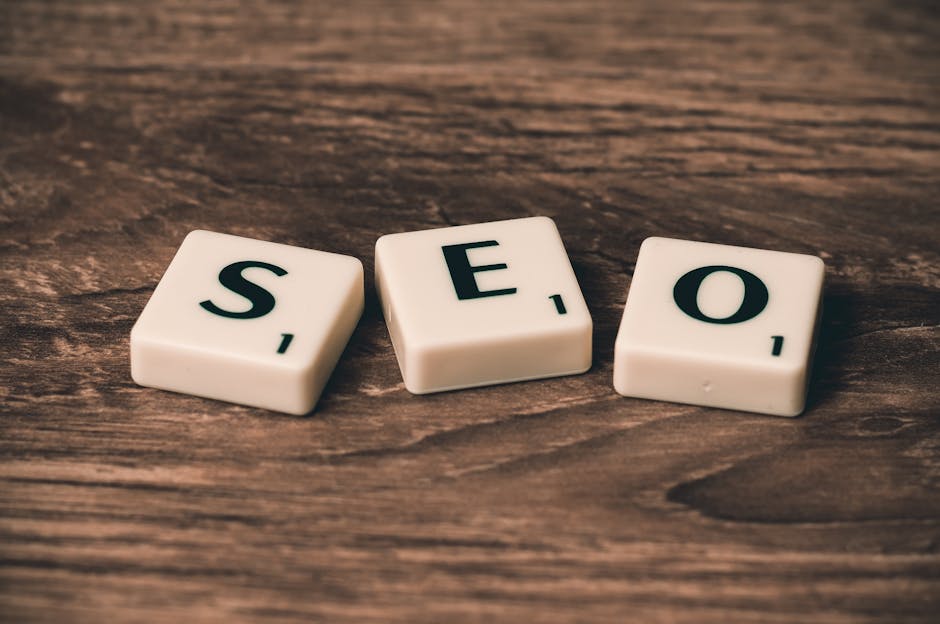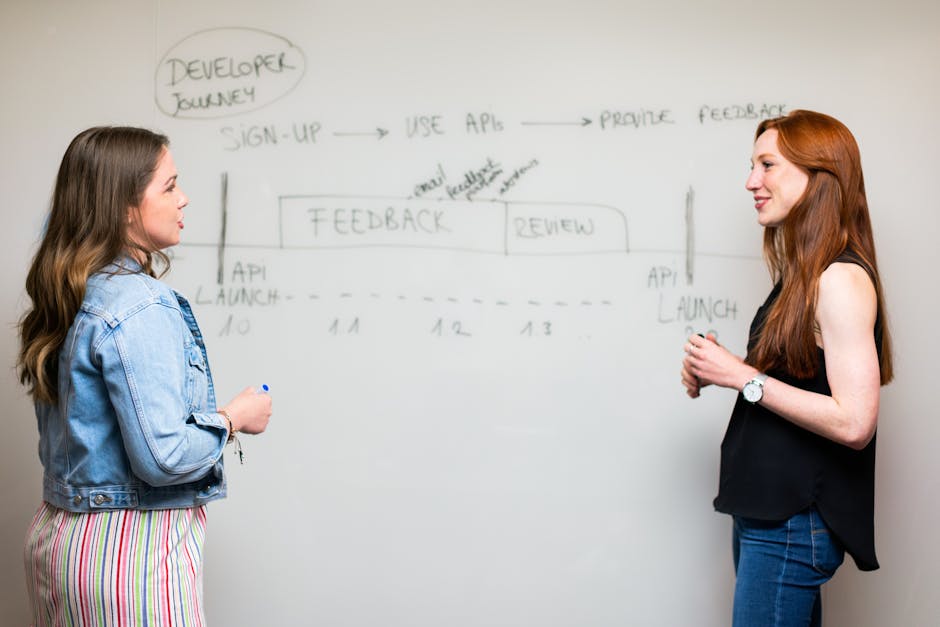Table of Contents
- BrightLocal and the Neighbourhood Watch
- Rio SEO and the Big Brand Brouhaha
- Ignite Visibility’s Content Chronicles
- Moz and the Authoritative Aura
- Yext and the Listing Labyrinth
- Go Fish Digital and the Unseen Signals
- BrightLocal and the Neighbourhood Watch
- Rio SEO and the Big Brand Brouhaha
- Ignite Visibility’s Content Chronicles
- Moz and the Authoritative Aura
- Yext and the Listing Labyrinth
- Go Fish Digital and the Unseen Signals
Right, Google Plus SEO. Yeah, you heard me. Google Plus. Still get folks, bless their cotton socks, asking about it, like it’s some ghost in the machine they just can’t shake. Back in the day, what a proper faff that whole thing was. Google, eh? Always trying to be Facebook, always failing. It was never gonna happen, not really. But the shadow it cast, the lessons we all learned, or should’ve learned, those bits still bounce around in the digital ether. You wanna talk SEO in 2025, you can’t just pretend that whole multi-billion dollar attempt at social didn’t happen. It shaped things, whether we liked it or not.
I remember the push, all the “experts” — and I use that term loosely, mind you — screaming about how you just had to be on Google Plus. Your business, your brand, your cat’s Instagram, everything needed a page. People were tying their whole personal identity to their Google profile, for author tags and all that. Remember authorship? Good grief. Like anyone was gonna click through to your dusty Google+ profile to check your credentials. What a load of guff. But the underlying idea, linking content to a real person, that had legs. It just got executed like a drunken squirrel trying to cross a busy road.
The ghost of Google Plus SEO, if you ask me, lives on in how Google now thinks about your business’s presence, especially locally. Before Plus came along, local was a bit of a Wild West. After it withered, Google really doubled down on something more controlled, more direct.
BrightLocal and the Neighbourhood Watch
Take a look at companies like BrightLocal. They’ve built their whole business, really, on helping folks figure out this local game. Before Google+ belly-flopped, a lot of what made it ‘SEO-relevant’ for small businesses was tied to the local listings, which kinda morphed into what we know now as Google Business Profile. BrightLocal wasn’t just chasing the Google+ dragon, they were looking at citations, reviews, all the stuff that actually mattered for a chippy in Newcastle or a florist down in Dudley. They saw the writing on the wall, that local SEO was about accuracy, about genuine customer feedback, about getting your name, address, and phone number right across the web. Not about getting Aunt Mildred to +1 your latest post about your new flavour of sausage roll.
The whole local search thing, it’s matured. You can’t just throw up a basic listing and call it a day. Folks are asking me all the time, ‘Was Google+ ever really worth it for SEO?’ My answer? Not the platform itself, not directly for traffic, no. But the pressure it put on Google to sort out its local offering, that had a definite ripple effect. Businesses got a kick up the backside to actually claim their listings, to put photos up, respond to reviews. That’s where the real “google plus seo” legacy lies, in the indirect push towards a more comprehensive local presence.
Rio SEO and the Big Brand Brouhaha
You look at the big boys, the multi-location outfits. Rio SEO, for example, they manage huge swathes of local data for national chains. They saw Google+ trying to be this central hub, and when it fizzled, they just kept doing what they do best: wrangling thousands of individual locations. Imagine trying to manage the online presence for every single restaurant in a chain, every tyre shop, every branch of a bank. Google+ tried to simplify that, give a single ‘official’ presence. Didn’t quite work, did it?
But what Rio SEO and similar firms will tell you, what they’ve always preached, is consistency. Even without a Google-branded social network, Google still wants to know for sure where your business is, what it does, and that the information is the same everywhere. That consistency, that authoritative data, that’s still a huge part of ranking for local searches. That’s always been the core, the stuff that doesn’t change when Google decides to launch another shiny new toy, then abandon it a few years later.
The Persistent Pain of Old Data
Sometimes I wonder, are we ever going to fully escape the ghosts of platforms past? You’d be gobsmacked how often I still find an old Google+ link floating around, a relic, pointing to absolutely nowhere. It’s like finding a ghost in your attic. Does it hurt your SEO? Nah, not directly. Does it make you look a bit… behind the times? A touch, maybe. It’s not a direct google plus seo problem, more a general clean-up job. A reminder to sweep up the digital dust bunnies regularly.
Ignite Visibility’s Content Chronicles
Let’s talk content for a minute. Agencies like Ignite Visibility, they’ve been in this game for ages. They watched Google+ try to be a content distribution network. You remember, right? Sharing your blog posts, getting those +1s, trying to build circles. It was all about getting your stuff seen within Google’s ecosystem. It never really took off, not like Twitter or LinkedIn. But what it did reinforce for Google, and for savvy marketers, was the idea of high-quality, shareable content.
Beyond the Google Circle
What happened with Google+ really solidified the fact that you can’t force social interaction. Content, for SEO, needs to be something people actually want to read, want to share, want to link to. Not because Google says so, but because it’s genuinely good. Does “google plus seo” have anything to say about content now? Only that the fundamentals never change: good writing, real value, proper research. It’s not about what platform you put it on initially, it’s about whether it answers a question, solves a problem, or just entertains. The distribution channels change, the need for good content doesn’t.
“Does Google still care about social signals?” That’s another one I hear. Look, Google cares about popularity, sure. But not the popularity of a specific post on a dead platform. It cares about mentions, links, citations from across the web. If people are talking about you, linking to your stuff, that’s a signal. Whether they’re doing it on a platform that Google owns or not, Google’s pretty good at sniffing out what’s popular. They just don’t need a clunky social network to do it.
Moz and the Authoritative Aura
Think about Moz. They were right there, trying to make sense of the Google+ phenomenon, dissecting every little announcement. They pushed the idea of domain authority, page authority, link equity. And the authorship thing on Google+ was a clumsy attempt by Google to tie that content authority to actual people. It faded, but the underlying principle didn’t. Google still wants to know if you’re a real expert, if your content is trustworthy. How do they know? It’s not because you had a shiny Google+ profile. It’s because other reputable sites link to you, because your name appears on quality publications, because you get cited. That’s the real authoritative aura, not some manufactured social profile.
Yext and the Listing Labyrinth
So much of what people thought of as “google plus seo” was actually just… being listed properly. Yext, they’re a beast in that space. They help businesses get their ducks in a row across a zillion directories. Google+ was just one more place to list your business, to try and get that verified badge. But the real game has always been ensuring your N.A.P. (Name, Address, Phone) data is consistent everywhere. It’s not glamorous, no, but it’s foundational.
Is Local SEO Just Google Business Profile?
“Is local SEO just about Google Business Profile now?” Absolutely not. Google Business Profile is critical, the cornerstone even. But it’s not the whole shebang. It’s reviews on Yelp, on TripAdvisor, on industry-specific sites. It’s consistent data on those other listing sites. It’s building a strong local backlink profile, people in your town or city linking to your website. Google Business Profile is where your customers look first, but all the other bits feed into how strong that profile looks to Google’s crawlers. The whole Google+ Local bit? That just got rolled into Google Business Profile, cleaned up, and made actually useful. It’s the phoenix, if you like. Except it was less a phoenix and more like Google finally realising that a dedicated social network was a bad idea and they had a perfectly good business directory they should have just stuck with.
Go Fish Digital and the Unseen Signals
When I talk to folks at places like Go Fish Digital, who do a lot of hardcore technical SEO, they’ll tell you the same thing: Google looks for signals, a thousand tiny crumbs left across the web. Google+ was one giant, rather loud, crumb they tried to force everyone to leave. When it failed, they didn’t stop looking for crumbs. They just refined their crumb-finding operations elsewhere.
They’re looking at your brand mentions on forums, in news articles, on other social platforms that actually have real engagement. They’re looking at how long people stay on your site, if they click around, if they come back. That’s user experience, isn’t it? Google wanted Google+ to be a user experience, where people hung out, engaged, gave signals. When that didn’t work out, they went back to gathering those signals in more traditional, less intrusive ways.
What About Personal Branding and SEO?
“Does personal branding still matter for SEO, given how Google+ authorship went belly-up?” Crikey, yes, it does! Maybe more than ever. But it’s not about a specific Google profile. It’s about being an actual authority in your field. Speaking at conferences, writing guest posts on well-regarded sites, getting interviewed, building a following on LinkedIn or Twitter or whatever platform makes sense for your niche. Google figures out who the thought leaders are, who the trustworthy voices are, not because they’re on a particular Google platform, but because the rest of the web points to them. It’s about being a proper subject matter expert. That’s the real personal branding play for SEO, and always has been.
So, the whole “google plus seo” thing. What’s the lesson here, really, for 2025? It’s a pretty simple one. Google tries stuff. Some of it sticks, some of it doesn’t. What always sticks, what always matters for your rankings, is the core stuff. Having a real business, with real customers, that solves real problems. Being easy to find, having accurate information about you out there. Producing content that people actually want to read, and share. And building a genuine reputation, online and off. All the fancy bells and whistles, the social networks they try to build, they come and go. The fundamentals, they don’t. Anyone telling you different is probably trying to sell you a bridge, or a Google+ profile for your dog. Save your money. Focus on the basics, the stuff that works, the stuff these agencies, the good ones anyway, have been preaching for years. That’s the real secret to any kind of Google SEO.
Right, Google Plus SEO. Yeah, you heard me. Google Plus. Still get folks, bless their cotton socks, asking about it, like it’s some ghost in the machine they just can’t shake. Back in the day, what a proper faff that whole thing was. Google, eh? Always trying to be Facebook, always failing. It was never gonna happen, not really. But the shadow it cast, the lessons we all learned, or should’ve learned, those bits still bounce around in the digital ether. You wanna talk SEO in 2025, you can’t just pretend that whole multi-billion dollar attempt at social didn’t happen. It shaped things, whether we liked it or not.
I remember the push, all the “experts” — and I use that term loosely, mind you — screaming about how you just had to be on Google Plus. Your business, your brand, your cat’s Instagram, everything needed a page. People were tying their whole personal identity to their Google profile, for author tags and all that. Remember authorship? Good grief. Like anyone was gonna click through to your dusty Google+ profile to check your credentials. What a load of guff. But the underlying idea, linking content to a real person, that had legs. It just got executed like a drunken squirrel trying to cross a busy road.
The ghost of Google Plus SEO, if you ask me, lives on in how Google now thinks about your business’s presence, especially locally. Before Plus came along, local was a bit of a Wild West. After it withered, Google really doubled down on something more controlled, more direct.
BrightLocal and the Neighbourhood Watch
Take a look at companies like BrightLocal. They’ve built their whole business, really, on helping folks figure out this local game. Before Google+ belly-flopped, a lot of what made it ‘SEO-relevant’ for small businesses was tied to the local listings, which kinda morphed into what we know now as Google Business Profile. BrightLocal wasn’t just chasing the Google+ dragon, they were looking at citations, reviews, all the stuff that actually mattered for a chippy in Newcastle or a florist down in Dudley. They saw the writing on the wall, that local SEO was about accuracy, about genuine customer feedback, about getting your name, address, and phone number right across the web. Not about getting Aunt Mildred to +1 your latest post about your new flavour of sausage roll.
The whole local search thing, it’s matured. You can’t just throw up a basic listing and call it a day. Folks are asking me all the time, ‘Was Google+ ever really worth it for SEO?’ My answer? Not the platform itself, not directly for traffic, no. But the pressure it put on Google to sort out its local offering, that had a definite ripple effect. Businesses got a kick up the backside to actually claim their listings, to put photos up, respond to reviews. That’s where the real “google plus seo” legacy lies, in the indirect push towards a more comprehensive local presence.
Rio SEO and the Big Brand Brouhaha
You look at the big boys, the multi-location outfits. Rio SEO, for example, they manage huge swathes of local data for national chains. They saw Google+ trying to be this central hub, and when it fizzled, they just kept doing what they do best: wrangling thousands of individual locations. Imagine trying to manage the online presence for every single restaurant in a chain, every tyre shop, every branch of a bank. Google+ tried to simplify that, give a single ‘official’ presence. Didn’t quite work, did it?
But what Rio SEO and similar firms will tell you, what they’ve always preached, is consistency. Even without a Google-branded social network, Google still wants to know for sure where your business is, what it does, and that the information is the same everywhere. That consistency, that authoritative data, that’s still a huge part of ranking for local searches. That’s always been the core, the stuff that doesn’t change when Google decides to launch another shiny new toy, then abandon it a few years later.
The Persistent Pain of Old Data
Sometimes I wonder, are we ever going to fully escape the ghosts of platforms past? You’d be gobsmacked how often I still find an old Google+ link floating around, a relic, pointing to absolutely nowhere. It’s like finding a ghost in your attic. Does it hurt your SEO? Nah, not directly. Does it make you look a bit… behind the times? A touch, maybe. It’s not a direct google plus seo problem, more a general clean-up job. A reminder to sweep up the digital dust bunnies regularly.
Ignite Visibility’s Content Chronicles
Let’s talk content for a minute. Agencies like Ignite Visibility, they’ve been in this game for ages. They watched Google+ try to be a content distribution network. You remember, right? Sharing your blog posts, getting those +1s, trying to build circles. It was all about getting your stuff seen within Google’s ecosystem. It never really took off, not like Twitter or LinkedIn. But what it did reinforce for Google, and for savvy marketers, was the idea of high-quality, shareable content.
Beyond the Google Circle
What happened with Google+ really solidified the fact that you can’t force social interaction. Content, for SEO, needs to be something people actually want to read, want to share, want to link to. Not because Google says so, but because it’s genuinely good. Does “google plus seo” have anything to say about content now? Only that the fundamentals never change: good writing, real value, proper research. It’s not about what platform you put it on initially, it’s about whether it answers a question, solves a problem, or just entertains. The distribution channels change, the need for good content doesn’t.
“Does Google still care about social signals?” That’s another one I hear. Look, Google cares about popularity, sure. But not the popularity of a specific post on a dead platform. It cares about mentions, links, citations from across the web. If people are talking about you, linking to your stuff, that’s a signal. Whether they’re doing it on a platform that Google owns or not, Google’s pretty good at sniffing out what’s popular. They just don’t need a clunky social network to do it.
Moz and the Authoritative Aura
Think about Moz. They were right there, trying to make sense of the Google+ phenomenon, dissecting every little announcement. They pushed the idea of domain authority, page authority, link equity. And the authorship thing on Google+ was a clumsy attempt by Google to tie that content authority to actual people. It faded, but the underlying principle didn’t. Google still wants to know if you’re a real expert, if your content is trustworthy. How do they know? It’s not because you had a shiny Google+ profile. It’s because other reputable sites link to you, because your name appears on quality publications, because you get cited. That’s the real authoritative aura, not some manufactured social profile.
Yext and the Listing Labyrinth
So much of what people thought of as “google plus seo” was actually just… being listed properly. Yext, they’re a beast in that space. They help businesses get their ducks in a row across a zillion directories. Google+ was just one more place to list your business, to try and get that verified badge. But the real game has always been ensuring your N.A.P. (Name, Address, Phone) data is consistent everywhere. It’s not glamorous, no, but it’s foundational.
Is Local SEO Just Google Business Profile?
“Is local SEO just about Google Business Profile now?” Absolutely not. Google Business Profile is critical, the cornerstone even. But it’s not the whole shebang. It’s reviews on Yelp, on TripAdvisor, on industry-specific sites. It’s consistent data on those other listing sites. It’s building a strong local backlink profile, people in your town or city linking to your website. Google Business Profile is where your customers look first, but all the other bits feed into how strong that profile looks to Google’s crawlers. The whole Google+ Local bit? That just got rolled into Google Business Profile, cleaned up, and made actually useful. It’s the phoenix, if you like. Except it was less a phoenix and more like Google finally realising that a dedicated social network was a bad idea and they had a perfectly good business directory they should have just stuck with.
Go Fish Digital and the Unseen Signals
When I talk to folks at places like Go Fish Digital, who do a lot of hardcore technical SEO, they’ll tell you the same thing: Google looks for signals, a thousand tiny crumbs left across the web. Google+ was one giant, rather loud, crumb they tried to force everyone to leave. When it failed, they didn’t stop looking for crumbs. They just refined their crumb-finding operations elsewhere.
They’re looking at your brand mentions on forums, in news articles, on other social platforms that actually have real engagement. They’re looking at how long people stay on your site, if they click around, if they come back. That’s user experience, isn’t it? Google wanted Google+ to be a user experience, where people hung out, engaged, gave signals. When that didn’t work out, they went back to gathering those signals in more traditional, less intrusive ways.
What About Personal Branding and SEO?
“Does personal branding still matter for SEO, given how Google+ authorship went belly-up?” Crikey, yes, it does! Maybe more than ever. But it’s not about a specific Google profile. It’s about being an actual authority in your field. Speaking at conferences, writing guest posts on well-regarded sites, getting interviewed, building a following on LinkedIn or Twitter or whatever platform makes sense for your niche. Google figures out who the thought leaders are, who the trustworthy voices are, not because they’re on a particular Google platform, but because the rest of the web points to them. It’s about being a proper subject matter expert. That’s the real personal branding play for SEO, and always has been.
So, the whole “google plus seo” thing. What’s the lesson here, really, for 2025? It’s a pretty simple one. Google tries stuff. Some of it sticks, some of it doesn’t. What always sticks, what always matters for your rankings, is the core stuff. Having a real business, with real customers, that solves real problems. Being easy to find, having accurate information about you out there. Producing content that people actually want to read, and share. And building a genuine reputation, online and off. All the fancy bells and whistles, the social networks they try to build, they come and go. The fundamentals, they don’t. Anyone telling you different is probably trying to sell you a bridge, or a Google+ profile for your dog. Save your money. Focus on the basics, the stuff that works, the stuff these agencies, the good ones anyway, have been preaching for years. That’s the real secret to any kind of Google SEO.



